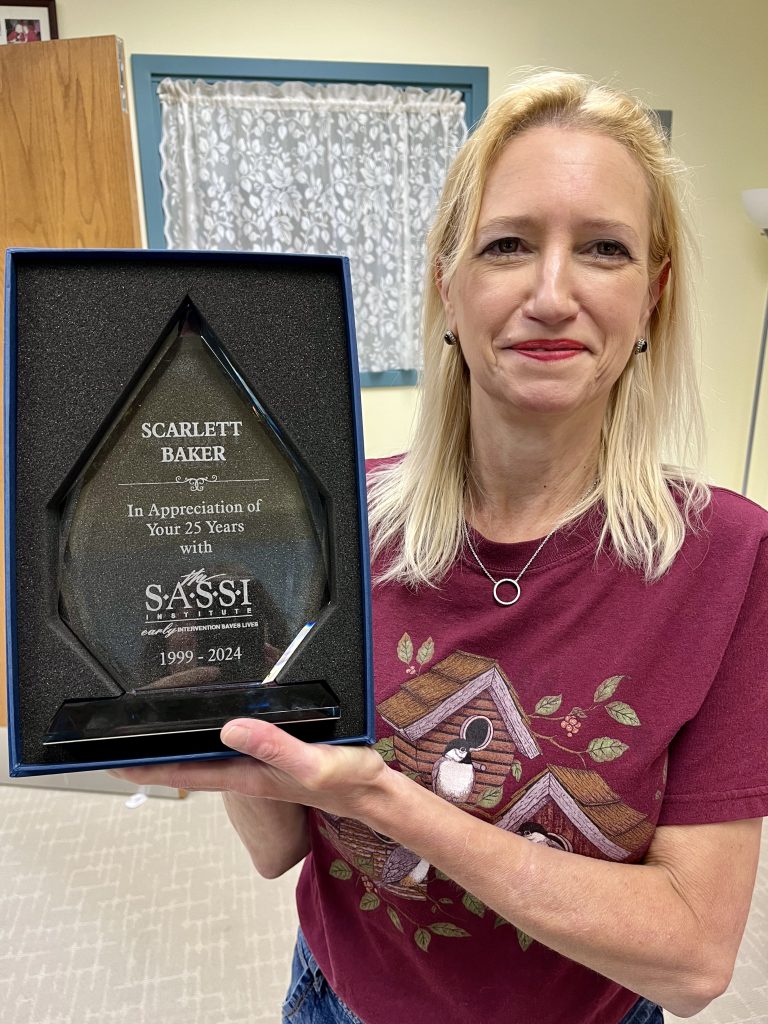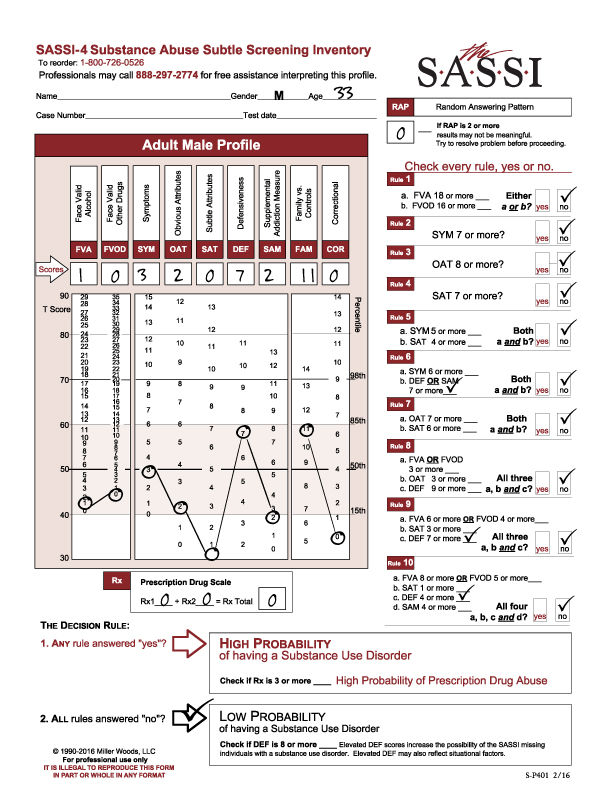This SASSI-4 profile is an excellent example of why the comprehensive assessment is a crucial part of the evaluation process.
This 33-year-old male completed the FVA/FVOD side of the questionnaire for his whole lifetime.
His RAP is 0 as is his Prescription Drug Scale.
His profile graphs most of his scores within the norm, between the 15th and 85th percentiles. The one standout is the SAT score of 0. That score indicates someone who is hypersensitive to what others think about him and may harbor feelings of resentment coming across as having a chip on his shoulder. Although the DEF score of 7 is not quite high enough to trigger looking at the possibility of SASSI missing individuals with a substance use disorder, it is significantly above average so there may be a “hint” of him exhibiting defensiveness.
Based on the face of it and on the SASSI alone, he comes up with a Low Probability of a Substance Disorder.
So, what is missing? The information gathered from the rest of his evaluation.
This individual has a history of 3 DUI’s – one in 2013, 2020 and the last in 2023.
As you can see, he does not indicate in his FVA or SYM any issues with alcohol or negative consequences of his usage. From his perspective, he has not had negative consequences. It could be that what he was required to do historically was minimal i.e. an alcohol education class. As these offenses are spread over 10 years, it may mean that he has a problem with drinking and driving. What is his current usage? Does he have a diagnosable disorder based on the DSM-5? Knowing about his extensive history requires the Clinician to dig deeper into this client’s use history and question his perspectives.
A useful tool we offer for both individual administration and for alcohol-related education and treatment interventions is the BADDS – Behaviors & Attitudes Drinking and Driving Scale.
It identifies drinking and driving and riding behaviors, history of impaired driving, the likelihood of riding or driving with an impaired driver, rationalizations for drinking and driving and intervention effectiveness.
The BADDS can be used in Driver’s education classes, Impaired driving prevention, DUI courts and DUI programs, Colleges and Universities and Counseling and treatment programs.
The BADDS can be used as a pre-test or be re-administered to measure behavioral and/or attitudinal change in multiple intervals. The post-test can also assess overall program effectiveness.
The BADDS is available in a paper and pencil version only for those 18 years or older with a third grade reading level and takes about 15 minutes to administer. We do offer on-demand webinar training. For more information go to www.thebadds.com.
PDF Version Available for Download


